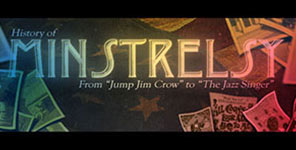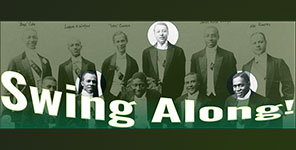USF Libraries Diversity and Inclusion Initiatives
Native American Land Acknowledgement
Beginning in 2019 the St. Petersburg campus library began working with campus and community partners to create a lank acknowledgment for the St. Petersburg campus. After careful consideration and feedback from the Seminole tribe, whose ancestors lived on the land that is now our campus we came up with the following.
The University of South Florida St. Petersburg wishes to acknowledge and honor the Indigenous communities who lived and took stewardship of this land. The university recognizes that this campus was built on the Indigenous homelands and resources of the Seminole, Miccosukee, and Tocobago people as well as their ancestors going back over 10,000 years. We acknowledge the painful history of genocide and forced removal from their territory, and we honor and respect the many diverse Indigenous people still connected to this land on which we gather. This is a call for all of us to commit to continuing to learn how to be better stewards of the land we inhabit.
There will be programming in April 2021 for American Indian/Indigenous People's week where the campus will unveil the land acknowledgment officially.
Reading Lists
The library has a huge collection of books and articles. We have created guides and reading lists to help our patrons find resources related to antiracism as well as diversity, equity and inclusion. The guides are linked on the left side of the page as well as here.
Diversity, Equity and Inclusion Guide
Children's Literature Portraying Religious Diversity in the US
Weekly Challenger African American Digital Newspaper Archive and Research Guide
Inclusive Spaces
 Accessible restrooms on each campus library
Accessible restrooms on each campus library
 Changing tables available on each campus library
Changing tables available on each campus library
 Gender Neutral restrooms on each campus library
Gender Neutral restrooms on each campus library
Online Exhibits
Embracing Past & Future: Celebrating Hispanic Heritage in Special Collections
 To honor Hispanic Heritage Month 2020 and the national theme of “Be Proud of Your Past, Embrace the Future,” USF Libraries – Tampa Special Collections presents an introduction to their more than forty collections documenting the history of local Hispanic and Latin American communities.
To honor Hispanic Heritage Month 2020 and the national theme of “Be Proud of Your Past, Embrace the Future,” USF Libraries – Tampa Special Collections presents an introduction to their more than forty collections documenting the history of local Hispanic and Latin American communities.
https://storymaps.arcgis.com/stories/5c4e014725cc422c845609100daf0d3d
The History of Minstrelsy
 This exhibit explores the history of minstrelsy, its significance in American history and theatre, and its enduring legacy.
This exhibit explores the history of minstrelsy, its significance in American history and theatre, and its enduring legacy.
https://usflibexhibits.omeka.net/exhibits/show/minstrelsy/minstrelsyintro
Speaking Out About Genocide
 Throughout the 20th century, genocides were perpetrated across the globe
Throughout the 20th century, genocides were perpetrated across the globe
https://usflibexhibits.omeka.net/exhibits/show/speakingout1/about.
Swing Along!
 This exhibit was created to showcase a selection of music that was digitized from the USF Libraries African American Sheet Music Collection to celebrate African American History Month in 2019, and to illuminate the authors behind the music.
This exhibit was created to showcase a selection of music that was digitized from the USF Libraries African American Sheet Music Collection to celebrate African American History Month in 2019, and to illuminate the authors behind the music.
https://usflibexhibits.omeka.net/exhibits/show/swingalong/introduction
Portraying Courage: Holocaust Survivors in Voice & Image
 In the Fall of 2010, the USF Tampa Library Department of Special and Digital Collections partnered with the Florida Holocaust Museum to present an exhibit entitled “Art and Autobiography: Holocaust Survivor Portraits by Nava Mentkow.” The library contributed selections from the Holocaust Survivors Oral History Project, a collection of over 40 bay area Holocaust survivor oral histories recorded from 2009-2011, in collaboration with USF Communication professor Dr. Carolyn Ellis. In this powerful collaboration uniting autobiography and portraiture, museum visitors were invited to view a collection of the artist’s evocative work while listening to the subjects’ compelling oral histories recounting their experiences during the Holocaust. This digital exhibition is presented as a lasting effort not only to share Nava’s sensitive and poignant portraits, but to preserve each survivor’s history and provide a meaningful multimedia experience.
In the Fall of 2010, the USF Tampa Library Department of Special and Digital Collections partnered with the Florida Holocaust Museum to present an exhibit entitled “Art and Autobiography: Holocaust Survivor Portraits by Nava Mentkow.” The library contributed selections from the Holocaust Survivors Oral History Project, a collection of over 40 bay area Holocaust survivor oral histories recorded from 2009-2011, in collaboration with USF Communication professor Dr. Carolyn Ellis. In this powerful collaboration uniting autobiography and portraiture, museum visitors were invited to view a collection of the artist’s evocative work while listening to the subjects’ compelling oral histories recounting their experiences during the Holocaust. This digital exhibition is presented as a lasting effort not only to share Nava’s sensitive and poignant portraits, but to preserve each survivor’s history and provide a meaningful multimedia experience.